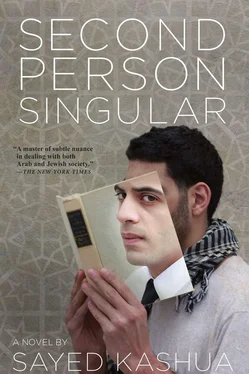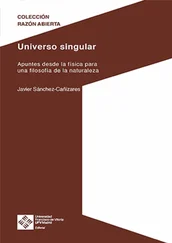BLUE LIGHTER
That night, while watching Yonatan, I smoked my first cigarette. On the way from Beit Hanina to Beit Hakerem I stopped in at a little convenience store in Musrara and bought a pack of Marlboro Lights, which was what Majdi smoked. A few seconds later I went back in and asked for a lighter. The shopkeeper took out a clear blue one and sparked it to show me that it worked.
That afternoon Wassim had told me he had decided to go back to the village. He’d gotten a job as a special-ed teacher in a school near Jat and he’d decided to go home, get engaged, build a house alongside his parents, and get married.
“If I stay in the city I’ll never really be able to save up,” he said, and back home he’d have no expenditures at all. Majdi was staying in Jerusalem for the time being, but not in the same apartment. He said he’d rather rent a place in Wadi Joz or Sheikh Jarrah, as close as possible to the courthouse and the office.
“If you want,” Wassim said, “Majdi could find something that would work for both of you.”
I nodded and said nothing. I knew that if something didn’t give soon, I wouldn’t be able to afford the rent much longer. But the knowledge that in two weeks’ time I would no longer have a place didn’t bother me; on the contrary, it was calming, liberating. I knew I could always sleep on the sofa bed beside Yonatan.
I got to Yonatan’s an hour early. Osnat opened the door and told me that I was early and that she had finally talked to Ruchaleh about splitting the work into three shifts. She couldn’t go on not seeing her daughter from seven in the morning until seven at night.
“We’re just going to have to find one more caretaker, Yonatan,” she said, caressing his hair before leaving.
I sat on the windowsill in front of the open window and took out a cigarette. I put it between my lips and lit it with the blue lighter. The cigarette went out. I lit it again, and again it went out. I didn’t understand how Majdi and the rest of the smokers in the world managed to burn a cigarette into ash. My first one was just blackened.
I rotated Yonatan in his bed and returned to The Notebook, which I had started the night before. The book was about twin brothers whose mother hides them in their grandmother’s small village during the Second World War. I was completely drawn in by the novel. It was one of the best I’d read and I knew that the night would fly by. The problem was that the book was too thin, too short, and even though I tried to read it as slowly as possible, I finished it within two hours. I rotated Yonatan again and then tried my luck with the cigarettes. I was sure the nights would be easier if I smoked.
I put another cigarette in my mouth and brought the flame close to the tip and when it touched the paper and tobacco, I inhaled deeply. This time it worked and I started to choke. I smothered my cough and felt my eyes water and threaten to pop out of their sockets. I ran into the bathroom, shut the door, and coughed hard until I was able to breathe normally again. I came out of the bathroom with my face washed and saw Ruchaleh waiting for me by the door.
“Is everything okay?” she asked, looking up at the ceiling and then directly at me.
I froze. She did not usually come up to the attic at night.
“Yes, everything’s fine,” I said.
“I don’t want you smoking next to Yonatan,” she said. “Not in the room.”
“I, I’m, ah. .” I stammered, “I’m not really smoking, I mean I. .”
“Doesn’t matter,” she said. “If you want to smoke just go outside to the garden or come down to the living room or the kitchen.” She shut the door behind her and left.
My face was flushed with shame and my attempts to smother another cough. I stood by the window and tried to breathe regularly, gingerly at first and then heartily, taking pleasure in the clean air now being drawn into my lungs. What did she mean, you can smoke in the living room? Where would she be while I was smoking in the living room? What was I supposed to do, go down there and smoke with her? I thought of how she never even really looked at Yonatan. She treated him as though he were transparent, looking over, under, and through him. What did she care if I smoked in his room or not? How was it that she was never by his side, that she preferred to spend money on round-the-clock care so that she didn’t have to spend any time with him.
It was a little past midnight and I was not having any luck putting myself to sleep. I opened Yonatan’s closet and carefully took out the camera. Soon enough I was able to click the lens into place. I looked through the viewfinder and tried to bring the items in the room into focus. When I spotted Yonatan, lying in bed with his back to me, I hit the shutter release and heard it click. The noise scared me. What the hell did I do that for? I looked at the door, waited for Ruchaleh to storm in and throw me out of the house. I quickly took off the lens, laid it back in the case, put the whole thing in the closet, sat down on the sofa, and listened to a long and undisturbed silence.
I tried to start another book, I counted cars passing below, and I listened to one of his Ministry albums twice, but it was still only three in the morning. I have to change my sleeping patterns, I thought. I have to be active during the days and sleep at night. It must be easier to be up during the day than at night. The thoughts that come and assault you during the day seem gentler and less scary than the ones that come at night. What’s the big deal? Why am I not allowed to use the camera and yet allowed to read the books and use the bathroom?
I turned my attention back to the camera and tried convincing myself that there was nothing wrong with what I was doing. Let Ruchaleh come in, who cares? She should be thankful that I’m here doing her job, taking care of her kid for her. She should be grateful that for a few nickels and dimes I come here every night, all night, and that I always come on time, even early. I looked through the viewfinder again, this time toward the street, the Jerusalem landscape at night, and pushed the button. There was no click. I looked at the camera. A little knob showed the number 22 and I realized that that was probably the number of pictures that had been taken. But I’d only taken one, so someone had used this camera before me. I hit the button again, without pointing the camera anywhere in particular, but it did not respond. I remembered that with our old camera at home you had to turn a little plastic wheel each time you took a picture, but there was nothing like that on Yonatan’s camera. I touched all the buttons and in the end decided to pull a lever alongside the knob. I heard the film advance and saw the number 23 on the knob. I pushed the button again and this time it clicked. I pointed the camera at the bookshelf, brought it into focus, and shot. Then I did that again and again until I hit 36 and could no longer pull the lever.
BUS PASS
I didn’t have much to move. The schoolwork, the folders, and all my papers went into the big garbage can outside our apartment building in Beit Hanina. The clothes came with me. I took them little by little in my gym bag, each day another installment, straight up to the attic in Beit Hakerem. I made some room for my things on the top shelf of Yonatan’s closet, up above the camera. I had to stand on a chair to reach my stuff. Within a week all my clothes were in Yonatan’s room. It was embarrassing to see how little I had when compared to the wardrobe of the immobile man I cared for.
At the end of the month, Wassim left the city and moved back to his hometown village and Majdi moved into a place in Wadi Joz along with another lawyer. I was left with no place of my own, but with a pull-out sofa alongside Yonatan’s egg mattress. At first I tried forcing myself to get some sleep during the night shift, knowing that I had no bed to sleep on during the day. I told Osnat that as far as I was concerned she could show up at ten, but she said that would be unprofessional.
Читать дальше












